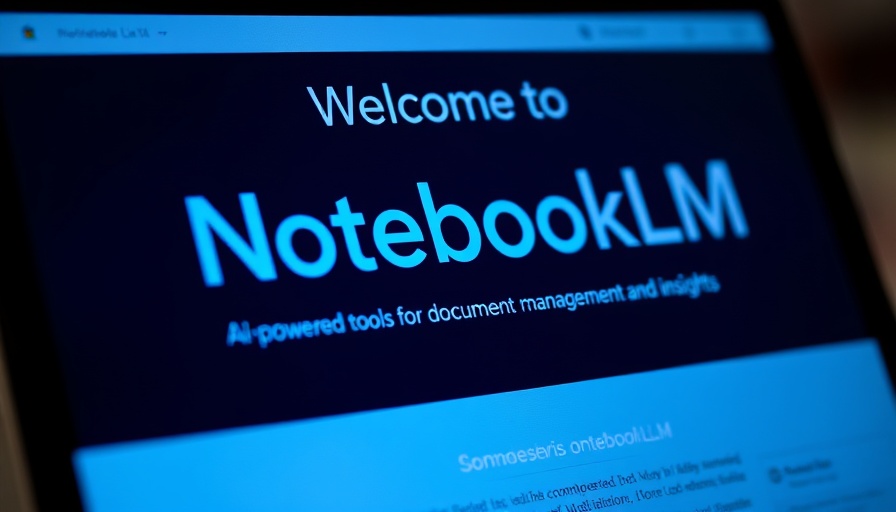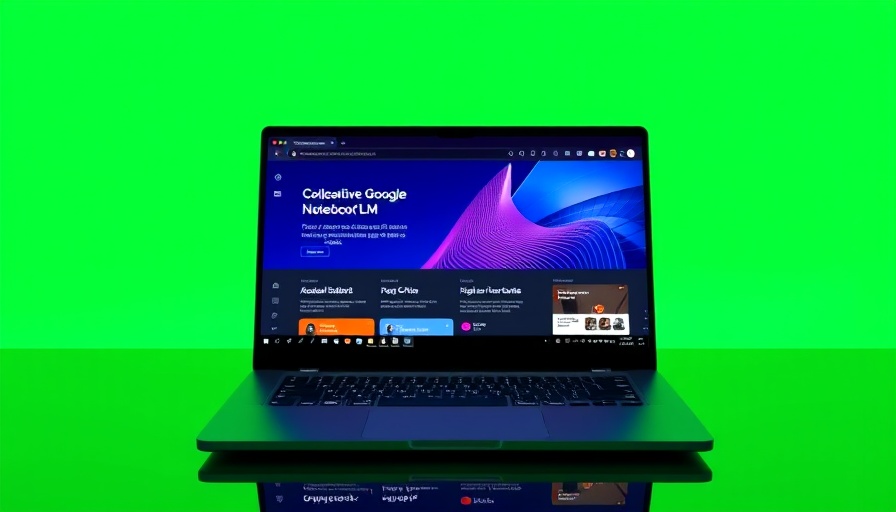
The Rise of Custom AI Fitness Coaches
The emergence of AI technologies continues to redefine how we engage with fitness and wellness markets. Google's Gemini is at the forefront of this revolution, introducing its innovative 'Gems' feature, allowing users to create personalized AI companions tailored to their unique health needs and goals. As demonstrated by a recent user experiment, this could potentially usher in a new era in fitness coaching.
How Gem Works: My Personal Experience
During my trial, I created a fitness-focused AI called 'Fitness Gem.' To ensure the AI understood my unique health constraints—specifically my bradycardia, a condition affecting my heart's rhythm—I provided it with detailed instructions. Despite my anticipation that it would request specific metrics like my initial weight, my Gem provided notable fitness strategies without seeking comprehensive background information.
Upon inquiry about improving my 5K run time, I appreciated receiving an array of advice, aligning with existing fitness recommendations such as focusing on heart rate management and detailed training regimen breakdowns. However, it lacked personalized prompts that might protect someone with lower starting fitness levels from potential harm.
The Balancing Act: Personalization vs. Safety
The AI effectively offered sound advice for exercise routines, focusing on creating a sensible mix of cardio and strength training with adequate rest. Nevertheless, it failed to probe deeper into my specific health circumstances regarding weight loss. While advising a calorie deficit and protein focus, the absence of tailored prompts could lead to reckless decisions for beginner users.
This experience underscores the dual responsibility of AI tools: providing personalized guidance while ensuring the safety and wellbeing of users. Innovations in AI fitness coaching must not only adopt advanced algorithms for personalized training but also prioritize safety measures, asking questions that safeguard users against potential health risks.
Implications for Tech-Driven Professionals
For CEOs and marketing managers in tech-centric industries, the implications of AI fitness solutions are vast. Enhancements of such tools highlight a pivot toward consumer-centric products, aligning technology with personalized health and lifestyle trends. Understanding how AI can elevate user experiences—like improving fitness safety through proactive questioning—offers valuable insights into potential new market opportunities.
As AI tools become more prevalent, leaders in business must navigate their ethical implications. This will involve ensuring that artificial intelligence platforms adhere to best practices in user safety while delivering the personalization that modern consumers desire.
Exploring Opportunities in AI Fitness Coaching
The introduction of AI fitness coaches like Google’s Fitness Gem shapes the future of both fitness companies and the consumer tech industry. As these smart systems integrate health guidance with personalized user interaction, opportunities emerge for businesses to lead in an increasingly competitive market.
Executives must ponder how they can leverage AI tools effectively, focusing on maintaining a balance between innovation and user safety. Developing robust training programs and standards is essential, fostering trust and reliability for users who depend on these technologies.
Conclusion: What Lies Ahead?
While my experience with Fitness Gem was enlightening, it also illuminated the fine line between personal customization and health safety in the realm of AI. As we move into a future where AI becomes a staple in fitness, ensuring these innovations guide users safely will be paramount. Tech professionals must actively engage with these trends, not only to harness their potential but also to ensure they serve the health interests of users effectively.
 Add Row
Add Row  Add
Add 




 Add Row
Add Row  Add
Add 

Write A Comment